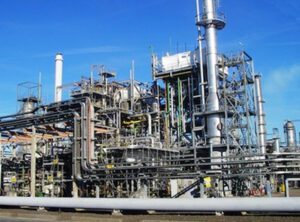


Nigeria’s continuous power grid crisis demands urgent action
The recent collapse of Nigeria’s power grid for the third time in just one week is a stark reminder of the ongoing energy crisis that has plagued the nation. Following similar blackouts last week, this latest incident marks the eighth failure of the national grid in 2024 alone, adding to a staggering total of 46 collapses between 2017 and 2023.
For a country blessed with abundant energy resources—including 200 trillion cubic feet of natural gas, a vast network of rivers ideal for hydropower, and ample sunlight for solar energy—it is nothing short of a national disgrace that Nigeria continues to grapple with such fundamental energy shortages.
Despite having a population of 220 million, Nigeria struggles to generate even 5,000 MW of electricity, a figure that is alarmingly inadequate for modern living. This situation highlights the profound failures of leadership that have persisted for decades. Visionless, inept, and often corrupt governance has resulted in a systemic inability to develop and maintain the critical infrastructure necessary for reliable electricity supply.
The Nigerian Electricity Regulatory Commission attributed Saturday’s grid failure to a transformer explosion at Jebba. However, this incident underscores a deeper issue: the chronic neglect of our power infrastructure. The failure to invest in the replacement and upgrading of aging components—such as substations, transformers, and transmission lines—ensures that these embarrassing episodes will continue to occur.
Last Wednesday, Minister of Power Adebayo Adelabu candidly acknowledged a harsh reality: the dire state of Nigeria’s power infrastructure renders grid failures—both total and partial—inevitable. “It will continue to remain like this until we can overhaul the entire infrastructure,” he asserted, emphasising a grim truth about the management of our electrical grid.
The roots of this crisis lie in decades of neglect and insufficient investment in the electricity sector, a glaring oversight by successive administrations despite a growing population and increasing demand for energy. The Bola Tinubu administration must confront this pressing issue head-on.
Highlighting the severity of the situation, AkinwunmiAdesina, President of the African Development Bank, revealed that Nigeria is home to approximately 86 million people living without access to electricity—the highest in the world. Furthermore, a recent report from the International Monetary Fund (IMF) estimates that Nigeria loses about $29 billion annually, equivalent to 5.6 percent of its GDP, due to unreliable power supply.
This is an alarming statistic that underscores the economic and social ramifications of our energy crisis. Nigeria’s electricity landscape is a complex and challenging one. Currently, generators supply about 48.6% of the country’s electricity, with a staggering $16 billion spent annually on fuel, according to the National Bureau of Statistics. A significant 59% of industries operate off the national grid, perceiving it as an unreliable power source, which hinders their competitiveness in the global market amidst soaring energy costs.
The issues plaguing Nigeria’s power sector are numerous and multifaceted. Key challenges include inadequate generation capacity, transmission and distribution bottlenecks, inefficient pricing and subsidies, and the operational shortcomings of Distribution Companies (DisCos). Also, regulatory uncertainties and inconsistent policies further complicate the situation. Despite privatisation efforts, the sector has not achieved the expected outcomes, primarily due to a mismatch between generation capacity and the capabilities of transmission and distribution networks.
While national demand hovers around 40,000 MW, Nigeria’s installed capacity stands at approximately 12,522 MW. Yet, the national grid struggles to deliver more than 4,200 MW. Even when peak generation reached 5,100 MW recently, the supply was curtailed by 1,400 MW because DisCos were unable to handle the additional load due to their infrastructure weaknesses. As a result, Nigerians face exorbitant and inconsistent electricity tariffs, a reflection of the system’s inefficiencies.
Efforts to revitalise Nigeria’s national grid through a partnership with Siemens since 2019 have devolved into a frustrating saga, with the Federal Government only pledging $800 million in September. Nigeria’s economic leaders must understand that without a stable, reliable, and affordable electricity supply, ambitious goals for growth and diversification will remain elusive.
The Tinubu administration must take decisive action to tackle the electricity crisis. This means allocating meaningful funds for power sector investments, focusing on high-quality infrastructure, smart grids, and efficient metering systems, rather than leaning on loans from external partners. The mere N344 billion—just 1.2 percent of the 2024 budget—earmarked for the power ministry signals a lack of genuine commitment to resolving this pressing issue.
Tinubu needs to establish a conducive policy environment that inspires investor confidence and taps into the vast potential of the energy sector. Urgently decentralising the national grid is critical. The debate over cost-reflective tariffs will become moot if consumers no longer need to shoulder the burden of expensive self-generated power.
Nigerians cannot continue to languish in darkness while grappling with basic needs in a rapidly advancing world. The time for action is now. It is imperative that the government take immediate and decisive action to rectify this situation. Nigeria’s potential for a stable and robust power supply is immense, but it will require a shift in leadership priorities, increased investment, and a commitment to transparency and accountability in the management of our energy resources.
The time for half-measures and empty promises has long passed; the Nigerian people deserve a reliable power supply that supports their aspirations for progress and development. Without such commitment, the cycle of blackouts and failures will persist, further hindering the nation’s growth and stability.
Addressing these challenges is not just a matter of infrastructure overhaul; it is a moral imperative. The Nigerian people deserve a reliable power supply that can fuel development and improve quality of life. The government must prioritise substantial investments and strategic reforms to revitalize the power sector, ensuring that reliable electricity becomes a cornerstone of Nigeria’s future prosperity.



